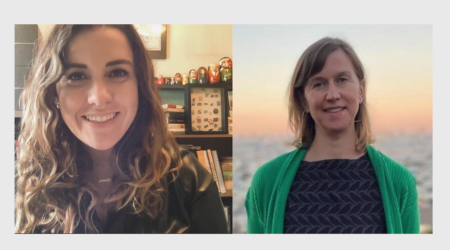Matrix On Point
REGISTER
Event Date: February 3rd, 2026
4:00pm-5:30pm
Matrix on Point: Corruption in America
This panel will bring together leading scholars from business, political science, and law to examine the many facets of corruption in the United States and the ways it is identified, constrained, and addressed. The panel will feature Sarah Anzia, Ernesto Dal Bó, and Erwin Chemerinsky, with Sean Gailmard moderating.
Learn More >Article
Interview
Published February 8, 2022
Innovation Matters: Competition Policy for the High-Tech Economy
In his new book, "Innovation Matters: Competition Policy for the High-Technology Economy," Richard Gilbert, Distinguished Professor Emeritus of Economics at UC Berkeley, argues that regulators should be considering the effects of mergers and monopolies on innovation, rather than price. Read our Q&A with Professor Gilbert.
Learn More >Authors Meet Critics
Recap
Published February 3, 2022
The King and the People: Sovereignty and Popular Politics in Mughal Delhi
On January 26, 2022, Social Science Matrix hosted an “Authors Meet Critics” panel discussion focused on the book, "The King and the People: Sovereignty and Popular Politics in Mughal Delhi" (Oxford University Press), by Abhishek Kaicker, Associate Professor in the UC Berkeley Department of History. Professor Kaicker was joined in conversation by Professors Asad Ahmed and Aarti Sethi. The panel was moderated by Professor Pradeep Chhibber.
Learn More >Podcast
Interview
Published January 20, 2022
Individual Trauma, Social Outcomes: A Matrix Podcast Interview with Biz Herman
In this episode of the Matrix Podcast, Julia Sizek interviews Biz Herman, a PhD candidate in the UC Berkeley Department of Political Science, a Visiting Scholar at The New School for Social Research’s Trauma and Global Mental Health Lab, and a Predoctoral Research Fellow with the Human Trafficking Vulnerability Lab. The podcast focuses on Herman's research on mental health and social stability at the Za’atri Refugee Camp in Jordan, as well as her broader research on the impacts of individual trauma on community coherence.
Learn More >Article
Interview
Published January 19, 2022
Online Extremism and Political Advertising: A Visual Interview With Laura Jakli
Using data from online advertising, Laura Jakli, a 2020 PhD graduate from UC Berkeley’s Department of Political Science, studies political extremism, destigmatization, and radicalization, focusing on the role of popularity cues in online media. Read a Q&A interview with Jakli, based on political ads and graphics.
Learn More >Podcast
Interview
Published January 11, 2022
Science and Socialism in Cuba
In this episode of the Matrix podcast, Julia Sizek interviews Clare Ibarra, a PhD candidate in history, and Naomi Schoenfeld, a public health nurse practitioner and recent PhD from the joint UC San Francisco/UC Berkeley medical anthropology program. They discuss the history of science and medicine in Cuba and its relationship to the socialist project, as well as how Cuba has developed vaccines during the current pandemic.
Learn More >Matrix On Point
Article
Published January 5, 2022
Matrix on Point: Democracy, Misogyny and Digital Media
On December 13, 2021, Matrix convened a diverse group of speakers to discuss today’s remarkable political moment, marked both by a new kind of women’s activism (centered on #MeToo and related movements) and by the rise of a misogynistic far-right. Panelists included Sarah Sobieraj, an award-winning teacher and researcher with expertise in US political culture, extreme incivility, digital abuse and harassment, and the mediated information environment; C.J. Pascoe, an associate professor of sociology at the University of Oregon and co-editor of Socius Journal; Julia Ebner, a radicalisation researcher and bestselling writer based in London; and Kishonna L. Gray, Associate Professor in the Writing, Rhetoric, Digital Studies program at the University of Kentucky. The panel was moderated by Raka Ray, Dean of the Division of Social Sciences at UC Berkeley.
Learn More >





